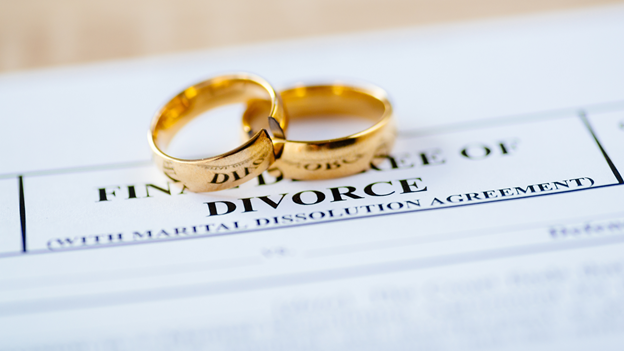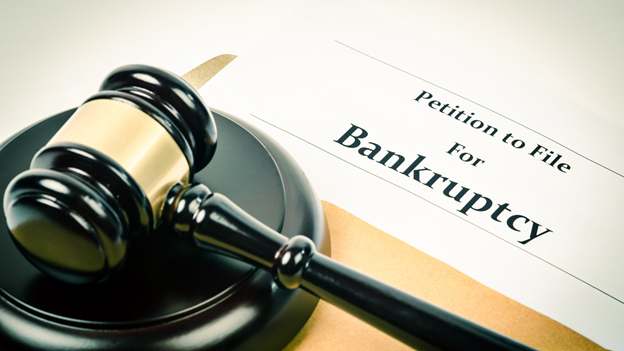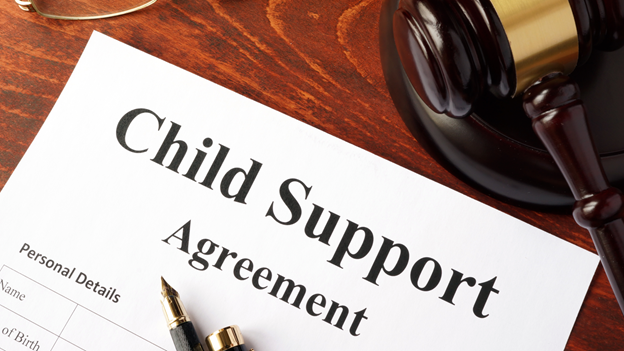
Divorce can be emotionally and financially draining, even when a split is cordial. Division of property and debt is an issue that can quickly become contentious. Although keeping lines of communication open when it comes to your finances during a divorce is a good thing, it doesn’t always work out. Depending on the specific situation, one spouse may decide to file bankruptcy during a divorce. If your soon-to-be ex-spouse files for bankruptcy in Texas, it’s critical to seek the counsel of a local bankruptcy attorney to learn how it may affect your divorce proceedings and finances.
How Bankruptcy Can Affect Division of Debt in Texas

Texas is a community-property state, which means that most assets acquired during the marriage belong equally to both spouses. However, assets each person owned before marriage remain their separate property. The same goes for debt in Texas. For example, if one spouse entered a marriage with an outstanding car loan, this debt may not be divided in a divorce. The spouse who owns the car would be solely responsible for paying it. Your spouse’s individually owned property becomes part of the bankruptcy estate after they file.
When it comes to marital property, federal or state bankruptcy exemptions can play a significant role in division of debt and whether it is included in a bankruptcy estate. No two cases are alike. Discussing these issues with an experienced bankruptcy lawyer before making any decisions can help you determine the types of action you should take if your spouse files for bankruptcy during a divorce.
Which Property Is Part of My Spouse’s Bankruptcy?

In community property states, all of the property you and your spouse own together may be part of your spouse’s bankruptcy estate, even if they file separately. Any property you solely own should not be included. Although the bankruptcy trustee can force the sale of nonexempt assets, typically the trustee must pay you for your portion. Trustees usually try to partition property before doing this. If it cannot be divided, the trustee must show that the benefit of selling the property outweighs the detriment to any co-owners.
If your spouse files Chapter 7 bankruptcy and a dischargeable debt like an auto loan is wiped out, you could still be on the hook for it if you are a co-borrower or cosigner on the loan. These issues are often murky and hard to understand if you’re unfamiliar with Texas bankruptcy law. Seeking the counsel of a Fort Worth bankruptcy attorney who is familiar with handling debt relief during divorce is critical to helping you keep as many assets as you can.
How Will an Automatic Stay Affect My Divorce?

If you’re going through a divorce and your spouse files bankruptcy, it can bring the process to a standstill until bankruptcy proceedings are complete. The court will put an automatic stay on all debts (regardless of whether your spouse files Chapter 7 or Chapter 13 bankruptcy), thereby halting collection efforts by creditors. Typically, an automatic stay also stops the division of property and debt if you’re in the midst of a divorce.
That’s why most bankruptcy lawyers recommend that clients file bankruptcy after their divorce is finalized. If you’re on good terms and it will benefit you both financially, you may also want to consider filing a joint bankruptcy before filing for divorce.
How Long Will My Divorce Be Delayed If My Spouse Files Bankruptcy?

How long your divorce is put on hold will depend on the type of bankruptcy your spouse filed. Chapter 13 bankruptcy is a reorganization of debt that is repaid over a period of up to five years. Chapter 7 bankruptcy is a liquidation of debt that is more expeditious and is often completed in a few months. However, the process can drag on if the bankruptcy trustee takes a long time to determine which assets should be sold. You may seek an order from the bankruptcy court to continue with divorce proceedings, but it doesn’t mean they will approve it. The family court will not continue the division of assets without permission from the bankruptcy court.
Does Bankruptcy Affect Alimony or Child Support?

No. The automatic stay doesn’t apply to issues surrounding child custody or support, alimony or spousal support — regardless of who’s paying who. If you’re in the process of determining who gets custody of your children or whether either spouse will have to pay for support, your spouse filing bankruptcy will not prevent those specific proceedings from moving forward. It’s still important to discuss it with a divorce attorney or bankruptcy lawyer to ensure your rights and your children’s interests are protected.
How Does My Spouse Filing Bankruptcy Affect My Credit?

Your credit should not be damaged by your spouse’s bankruptcy filing. However, if jointly held debt is discharged in your spouse’s bankruptcy and creditors come after you, failing to pay can put a stain on your credit report and cause your score to drop. If you receive an inaccurate adverse rating on your credit score as a result of your spouse’s bankruptcy, contact a Dallas debt relief lawyer right away. They can advise you on how to address the matter with credit reporting agencies and have it removed from your credit report.
Should I Contact an Attorney If My Spouse Is Threatening to File Bankruptcy?

The best way to get through a divorce financially and emotionally is to be civil. Try to work with your spouse to come to a fair divorce settlement agreement. Unfortunately, some people try to use bankruptcy as a tool to get revenge or control over a soon-to-be ex. Although these threats are often empty, it is essential to contact a Texas bankruptcy attorney for advice if your spouse is holding bankruptcy over your head. If you still have access to your spouse’s financial information, a bankruptcy lawyer may review it and determine your eligibility for Chapter 7 or Chapter 13. They can also review all of your property and debts and advise you of the most effective course of action to safeguard your assets and financial security.
Learn More about Filing Bankruptcy during Divorce

At Leinart Law Firm, our bankruptcy attorneys provide the compassionate, competent legal support you need during difficult times. For more than 15 years, our team has helped clients throughout north Texas find practical debt relief solutions and get their finances back on track. To schedule a free consultation, please call our Dallas law firm at 469-232-3328 or our Fort Worth law firm at 817-426-3328. You can also fill out our website’s contact form, use our convenient chat feature or email us today.


